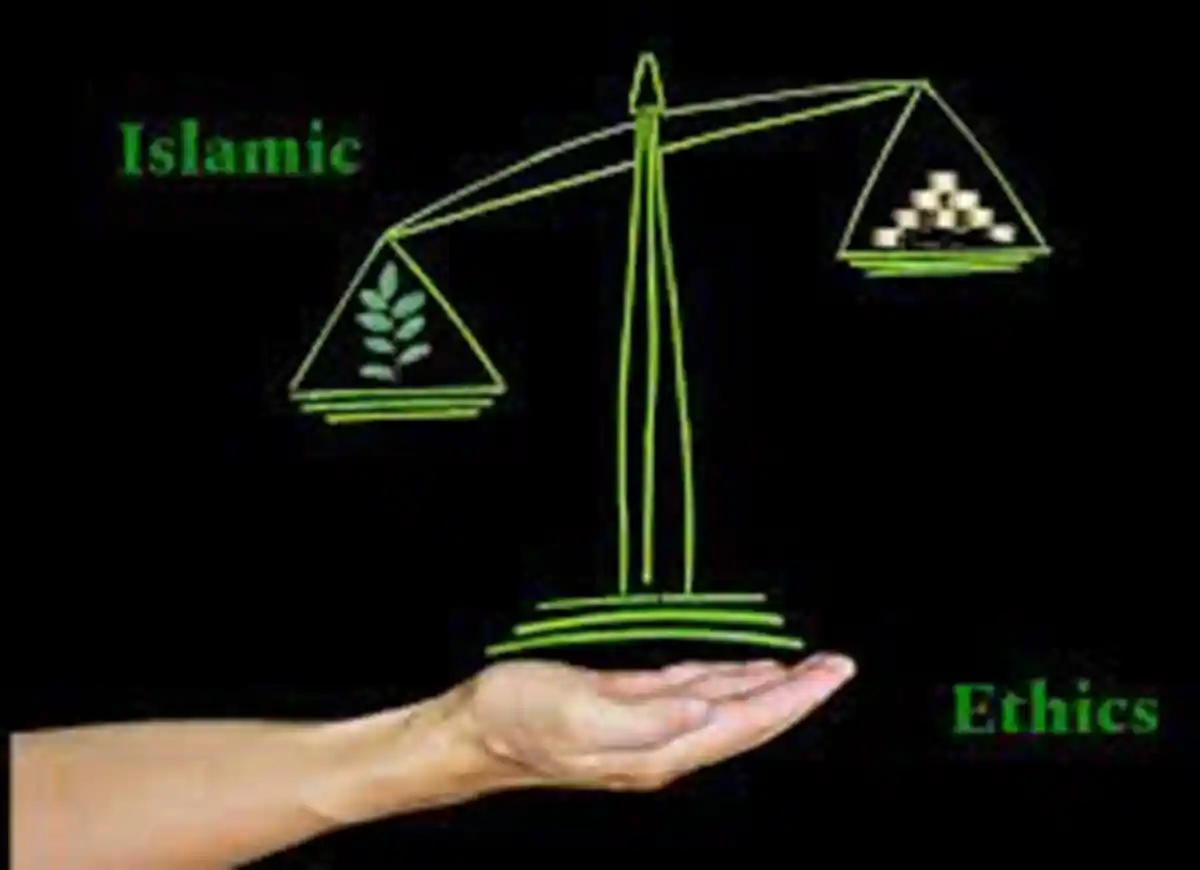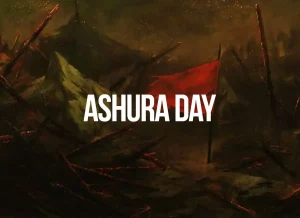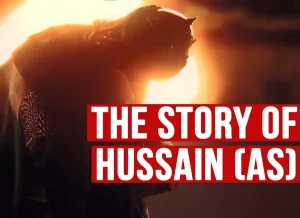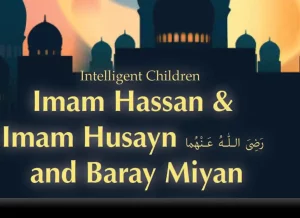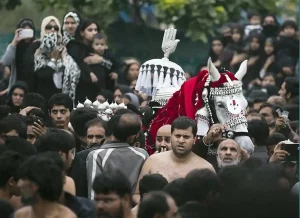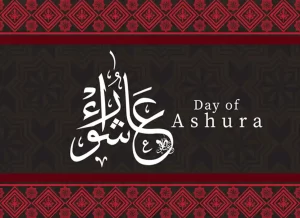The Ethical Triangle of Islam – Navigating Moral Foundations – Understanding the Core Values that Shape Islamic Ethics for a Harmonious Society” Taqwa, Ramadan, and the Quran: The Triangular Link of Our Ethical System
We’ve all experienced numerous months of Ramadan throughout our lives. It is a sad fact that our lives often aren’t touched or impacted by the fasting month; however, every ritual aspect of Islam – namely, Ibadah as a whole, or in the sense of a narrow definition is a particular purpose with a special significance.
There isn’t an aspect of Islam that does not have a reason or significance. Its ignorance or inability to grasp transforms our Ibadah into nothing more than a ritual.
One of the reasons for the stagnation in our personal and collective Muslim life is our inability to build our lives according to the “purpose and significance” of Ibadah.
There is a reason behind every act of creation by God. “Not without purpose did We create heaven and earth and all between! “ (Quran 38:27).
Within the framework of God’s purposeful creation, God wants to place the entirety of human existence built on Ibadah. “I have created Jinns and human beings to allow them to give an Ibadah (to Me). ” Quran 51:56. If this intention or goal-orientation is not affecting our lives the way we live, then stagnation will be inevitable.
Ibadah will be throughout the life of human beings. It is crucial to know that there are five pillars to Islam, which include Shahadah (witnessing), Salat (prayer), Zakat, Siyam (fasting), and Hajj.
The Islamic way of life is built on these pillars. The way of life based on Islam gets its vitality from the five pillars. When these five pillars become removed from the larger environment of human life and their purpose, Ibadah is likely to become just a ritual.
The kind of Ibadah doesn’t have the golden tinge. The colour of this Ibadah will not allow the surroundings to bloom in full radiance. It is impossible to listen to this Ibadah and hear the uplifting melodies from life in the Aakhirah-bound daily life.
The central focus that this essay focuses on can be described as Taqwa (God-consciousness), A theme with an interconnected triangular relationship to our moral and ethical systems.
In the first place, God gave the last revelation, the Quran, to guide humanity. Therefore, it is said that this Quran is the source of guidance (Huda’) for us. “This is the Book – in it is guidance sure, without doubt, to those who are (Muttaqoon) God-conscious. “ Quran 2:2.
So it is evident that this Quran is not just to accumulate bits of reward (thawab); however, it is to be used as a comprehensive guide for our lives and solving problems of our Aakhirah-bound world.
However, to use the Quran as a source of guidance, it is necessary to have a fundamental capital. That essential capital includes Taqwa (God-consciousness). That’s why the Quran is the guide; however, it only applies to people who have ( Muttoqoon) (God-conscious).
Furthermore, God has not only communicated His expectations of us but has also given us information about ways to meet His expectations. This is why God has demanded the minimum amount in Taqwa and provided us with the best way to reach and enhance our Taqwa. The five pillars of Islam include five distinct roles. However, they are complementary. The process of achieving Taqwa is closely linked to one of the five principles: Siyam (fasting). “O you who believe! Fasting is prescribed to you as prescribed to those before you, so you may attain Taqwa (God-consciousness).” [Quran 2:183]
Thirdly, as the fasting process is more than the practice of a ritual, getting Taqwa isn’t just a pious pursuit with no motive. Therefore, the third of the triangular connection of morality and ethics is the specific month of Ramadan that God has chosen as the prescribed month of fasting. This link’s significance is evident in the Quran. “Ramadan is the (month) that we read the Quran to serve as a guiding light to humanity, as well as explicit (Signs) to guide us and judging (between right and wrong). Every person at home (at home) during Ramadan should be fasting during it. ….” (Quran 2:185].
The verse above helps create the triangular connection. God has given us the Quran to provide us with direction. One of the most fundamental requirements to benefit from the divine revelations of the Quran is the attainment of a certain amount of Taqwa.
As a method and means of achieving Taqwa, God has chosen fasting as one of the five foundations of Islam and chose this month to be the month of fasting closely linked to the revelations in the Quran.
Thus, being a Muslim or being a believer in Islam inevitably implies that, after thorough inquiry and proper research, we must be able to accept the Quran as an all-encompassing, unalterable, indivisible, and balanced source of direction to our daily lives.
We should sincerely resolve to subordinate our entire lives to the guidance provided by this source. To gain the most from the Quran and benefit from it, we must constantly increase our Taqwa. So, it is essential to take advantage of the month of fasting, Ramadan, to improve and expand our Taqwa.
Fasting is a way to enhance Taqwa is the subject of a separate article. But, the great Prophet has beautifully clarified the importance of fasting in many Hadith, including: “God has no interest in any person’s abstention from eating and drinking if that person does not give up lying and dishonest/indecent actions” [narrated by Hadhrat Abu Hurrah in Sahih al-Bukhari Vol. 3, #127]. It is important to note that the advantages of the aversion to lying and dishonest actions aren’t limited to Muslims themselves. In a separate Hadith, we are warned about the potential ceremony: Salat (prayer) and Siyam (fasting). Hadhrat Abu Hurairah said: “There are some people who fast, but their fasting is nothing more than abstention from food, and there are many who pray (at night), but whose praying is no more than being awake at night” (Musnad Ahmad Vol. 2, #9698].
Sadly, even though the principles of Islam are unambiguous and each aspect of Islam is part of an integrated and complete lifestyle and practice, our Muslim identity and way of life are so different. This is one reason why Ramadan is a month that arrives and goes into our lives.
Still, the reason why God has made it mandatory during Ramadan – the connection with our Ibadah and the world, on one side, and the reason for fasting, on the other hand – is not realized. The resultant situation within our lives can also be seen in our collective lives.
Muslims are not all of us, but many are fasting. But for those fasting, it is apparent that the crucial link between our lives and the ever-growing Taqwararely can be established.
There is often a gap within the lives of those who honestly and diligently follow the ritualistic aspect of Ramadan. This is because of our failures, both as individuals and as a group, to apply the Quran as a Huda (guide) to guide us in our lives and to recognize this month as an opportunity to improve and strengthen our determination to follow the guidance of this Book and apply it to direct our Aakhirah-bound lives into a positive productive, positive, and practical guide.
The Quran is not made public because people would be sceptical and then accept it and demonstrate their love for it by printing it as artwork and then wrapping it in velvet. I will place it on an inaccessible shelf near the roof.
They also repeat it without understanding its meaning to find the key to heaven. The primary purpose of the recitation is to study, understand, and learn, which should eventually lead to the application of the lessons of the Quran throughout the spectrum of daily life.
The time when it is most vital for us to grasp the connection mentioned above deeply can be the time of fasting. It’s a time to manifest and follow the divine guidance we require, Taqwa. But, most of us need to be made aware of or even concerned about the connection with fasting or Taqwa.
Some of those familiar with this connection fail to recognize our obligation to acknowledge and accept Taqwaas as the basis of our lives according to the Quran. People aware of the triangular connection easily comprehend the implications of ignorance and naiveté in this connection.
Regarding the degeneration of modern Muslim society’s moral and ethical framework, it is crucial to realize that the solution to this problem is connected to the functional link to Taqwaand and moral and ethical values.
We can only achieve the true liberation of our people on both the individual and the collective level once we connect our actions and words and resolve our issue of a lack of integrity in the purpose and behaviour. We require a complete overhaul of our beliefs. We are not saying the case that Muslims aren’t aware of the values. But, a lot of misunderstanding and inadequacy exists regarding the proper role of these values in our daily lives.
It’s also a fundamental failing of those educated or experts, particularly from a religious perspective, to communicate the importance of this ethics and value system to the masses.
This is demonstrated in that you can look at the content and theme in this Jumuah Khutbah (Friday Prayer Sermon), where a great deal is discussed concerning prayer and different aspects of Islam. However, at no point in my life have I been to a Friday sermon that stressed the importance of literacy or creating relationships with people of all kinds, even non-Muslims.
Let’s not dwell on the issue of people with a secular outlook (in some instances, they are anti-religious). The lack of awareness or apathy towards religion in their way is typical. In various societies, there are many kinds of persons who are considered to be secular or even anti-religious.
In Muslim societies, they have “secular Muslims” – that is, basically “anti-religion Muslims.” This is a ridiculous and pathetic scenario. However, we will discuss this subject in the future.
The reality is that the concept of secularism, as well as atheism, agnosticism, socialism, nationalism, or capitalism, doesn’t provide us with a reliable, well-balanced, comprehensive, and consistent system of moral and ethical norms that, in the end, are advantageous to us. In this regard, the question of what is the reason why Muslim societies have become so severely messed up.
Many may also ask the reason behind the incredible achievement in the West. Do they have an ethical basis and moral principles that could be more effective or worthwhile? We must analyze these questions on two levels.
On the one hand, we need to address those who aren’t in awe of the centrality of religion in our lives or don’t have a firm position on this matter in any way. They typically have a different view of religion. And then some believe that religion is a fundamental part of the lives of humans, in which case Muslims are believed to belong. The discussion at the initial level is crucial, but the scope of a debate is different. The focus of this article is on the second category of people.
The people who consider themselves Muslims can define values and ideals and moral and ethical standards. There is no need or space for an unblinking faith within Islam. Islam does not accept or respect blind faith. That’s why it teaches people in unambiguous language that believing in Islam is to get Islam by knowing and understanding it in all its aspects, that is, its principles, values, and rules.
If we are to accept Islam, it is a good idea to put in a severe and ardent effort to arrange our lives by Islam. There are many reasons to doubt or be uncertain regarding the subject. Islam recognizes our freedom and encourages us to work towards a similar effect to eliminate such doubts and vacillations.
If these doubts or vacillations are not able to be resolved or overcome, then why should we believe in Islam? What’s the reason to adhere to Islam? What is the motivation or value of this belief and identity? What’s the significance and significance of being a Muslim without insecurity, doubt, or even ambivalence?
We must be transparent and truthful to ourselves that those with this ambivalence regarding Islam do not gain from Islam, and neither will they be beneficial to Muslims or the world at large. Let’s look at the situation of those who, indeed, are a believer in Islam.
What’s the cause behind the moral degeneration of our society? The majority of whom are associated with Islam. What’s the cause of the deplorable and fragile state of this society?
Whatever views we may have regarding Western societies and whether or not we are interested in comparative analysis, it is clear that there is a basis for us as Muslims to assess our issues, and that is Islam.
Let us ask ourselves a few more pertinent questions. What has caused our society to be so unstable? Do we have a solution for this problem in Islam? As Muslims, are we facilitators or hinderers in this scenario? What is the cause of the widespread poverty, deprivation of exploitation, oppression, and deprivation that we see in the world?
Is Islam failing in this regard? Or is this problem because of Islam, or could it be due to us that these issues persist? Why are corruption, bribery, and violence so prevalent throughout our culture?
Should we blame in addition to Islam? Should we not be able to overlook our present issues and celebrate our successes in the next life by blaming the problems on the fate of Allah?
Why are our society’s authority and control in the hands of people or parties with no integrity? Does Islam’s teachings be clear in this regard? Why are the infants of different regions in the Muslim world dying early due to disease or malnutrition? Why do we continue to bear the burden of illiteracy?
In light of all these questions, what is the value and power of our Iman (belief), Amal (action), or Taqwa(God-consciousness)? Is Islam instructing that we should leave this world to live in the future?
Are we able to portray Islam to the world while we’re humiliated, beaten down, and reliant, on the other hand, and are a laughing public figure in the world while we seek aid or recognition in the West? Let us not be apathetic, but can we find any effective solution from the multitude of holy Muslims who sincerely perform prayers and fasting – for various issues?
Only God is the only one who knows that one of the months in Ramadan is the final one in our lives. If we’re facing the challenges discussed above, it’s essential to understand Taqwa’s three-way connection with this month: Ramadan with fasting, a month of fasting, and the Quran as a source of guidance.
This connection will aid us in understanding and motivating ourselves to understand that Taqwa, Ramadan, and the Quran are not meant to be the pursuit of rituals but are a values-based active life that is also for the benefit of the human race.
Let us celebrate this wonderful month of Ramadan with the same spirit and consciousness and guide this lifestyle bound to Aakhirah in the desired direction. Improving your Taqwa will aid us in constructing a vibrant Islamic life.
NEWS:
- Deen Obedience Redefined: Unveiling Islam’s Evolution Through the Prism of Worship
- Diplomatic Discussions: US, Israel, Egypt, and Qatar Officials Engage in Gaza Talks in Paris
- Decoding Halal: Understanding Islamic Law and its Role – A Closer Look at the Bob Menendez Indictment
- International Response: Eight Countries Join U.S. in Temporarily Halting Funding to UN Aid Agency in Gaza
Categories: PRAYER (Salat), ALMS (Zakat), SAWN (Fasting) HAJJ (Pilgrimage) & DUA (Supplications), Hadith and Tafseer, The Holy Quran, Quran Jaz 1- 114
Topics: Ushr and Zakat, Hijab, Arabic Corner, Faith, Islamic History, Biography, Sirat ul Nabi PBUH, Islamic Studies, Halal & Haram


